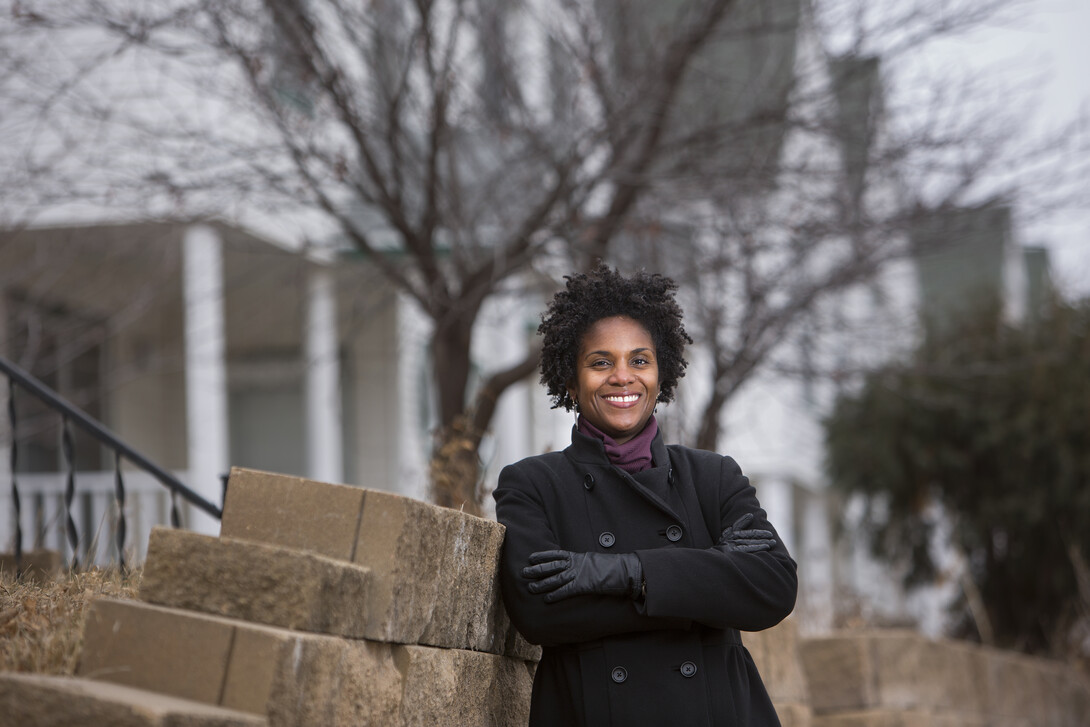
As a rising star in population-based research, UNL sociologist Bridget Goosby was one of six scientists from across the United States selected to meet with the director of the National Institute of Child Health and Human Development to discuss the importance of continued funding from the institute for population-based research.
Goosby, associate professor of sociology, met with Alan Guttmacher, director of the institute last month in Washington, D.C., and discussed how funding from the institute has allowed her to continue her research on discrimination and its affects on health.
She was among a six-scholar delegation from the Population Association of America, which sends representatives to meet with Guttmacher each year to bring the most innovative research to the table and to demonstrate that the funding is important.
“Funding from the institute is transformative and they want to reiterate that,” she said. “Having a face-to-face opportunity to do that is much more meaningful, particularly in a time when funding is scarce.”
This year’s representatives were considered the future leaders in the field. Those who attended the meeting with Goosby were Stephanie Mollborn of the University of Colorado-Boulder; Lawrence Berger of the University of Wisconsin; Susan Cassels of the University of Washington; Harsha Thirumurthy of the University of North Carolina at Chapel Hill and Elaine Hernanez of Indiana University.
Goosby is in her third year of research through an NICHD Population Research Scientist Development Award. The grant allows her to complete research on how discrimination is affecting the health in youth ages 10 to 14. She presented her findings to Guttmacher.
“The big findings of the study – that to my knowledge have never been found before – are that discrimination among children is related to health risks like chronic inflammation and high blood pressure,” she said. ”We were able to measure and show a strong association between discrimination and inflammation, which was unexpected.
“If we have children showing symptoms of chronic health conditions already in early adolescence, this is going to have long-term implications for their health into adulthood.”
Goosby said without support from NICHD, most population-based studies, including hers, would not be possible.
“NICHD is the only source of funding for demography research that’s not in elderly populations, so it’s critical for those of us interested in population-level health to have access to NICHD support,” Goosby said. “This was an opportunity to say, ‘This kind of work, I never could have done without this funding.’
“And he was very interested in everything we had to say, so the meeting was a success.”







